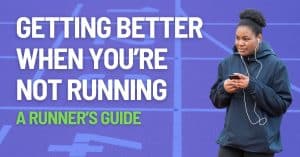 Dr. Tim Noakes is one of the most influential and esteemed exercise scientists in the world. His book, The Lore of Running, is considered by many students of the sport to be the Bible of training theory.
Dr. Tim Noakes is one of the most influential and esteemed exercise scientists in the world. His book, The Lore of Running, is considered by many students of the sport to be the Bible of training theory.
We’re honored to have him join our podcast today for an in-depth interview about some of his latest research on hydration, mental training, and the optimal diet.
Perhaps one of the reasons Dr. Noakes is so renowned is his continued desire to question current training theory, even conclusions he initially helped define. Rather than resting on his laurels, Dr. Noakes continues to challenge his own beliefs by pushing his research and understanding of training theory.
Some of the topics we cover in this interview include:
- Redefining our thoughts on dehydration and the danger of hyponatremia (over-hydration). Including, what causes this, why is it’s so prevalent and dangerous, and refined hydration guidelines for training and competition.
- His changing perspective on carbohydrates and his move to a more high fat, high protein diet. Specifically, we discuss the importance of teaching your body to stop seeking out carbohydrates and how finding your minimum number can help improve your performance and overall health.
- Finally, we discuss the role the brain plays in training and racing and how understanding how this process works can help you push through hard workouts and races.
Dr. Noakes is truly a pioneer and authority in the sport and his passion for research and running are palpable throughout this interview. I hope you learn as much as I did from it!
Listen to this week’s show now
![]() Download the podcast version here
Download the podcast version here
Download directly to your iTunes podcast or directly to your Stitcher Radio app and take this interview on your next run
Links and resources mentioned in this interview:
Waterlogged: The Serious Problem of Overhydration in Endurance Sports
Challenging Beliefs: Memoirs of a Career
Dehydration and Performance: The Right Way To Rehydrate When Running
Marathon Long Runs on an Empty Stomach or Fully Fueled
Can Limiting Your Carbohydrate Intake during Training Lead to Better Marathon Performance?








